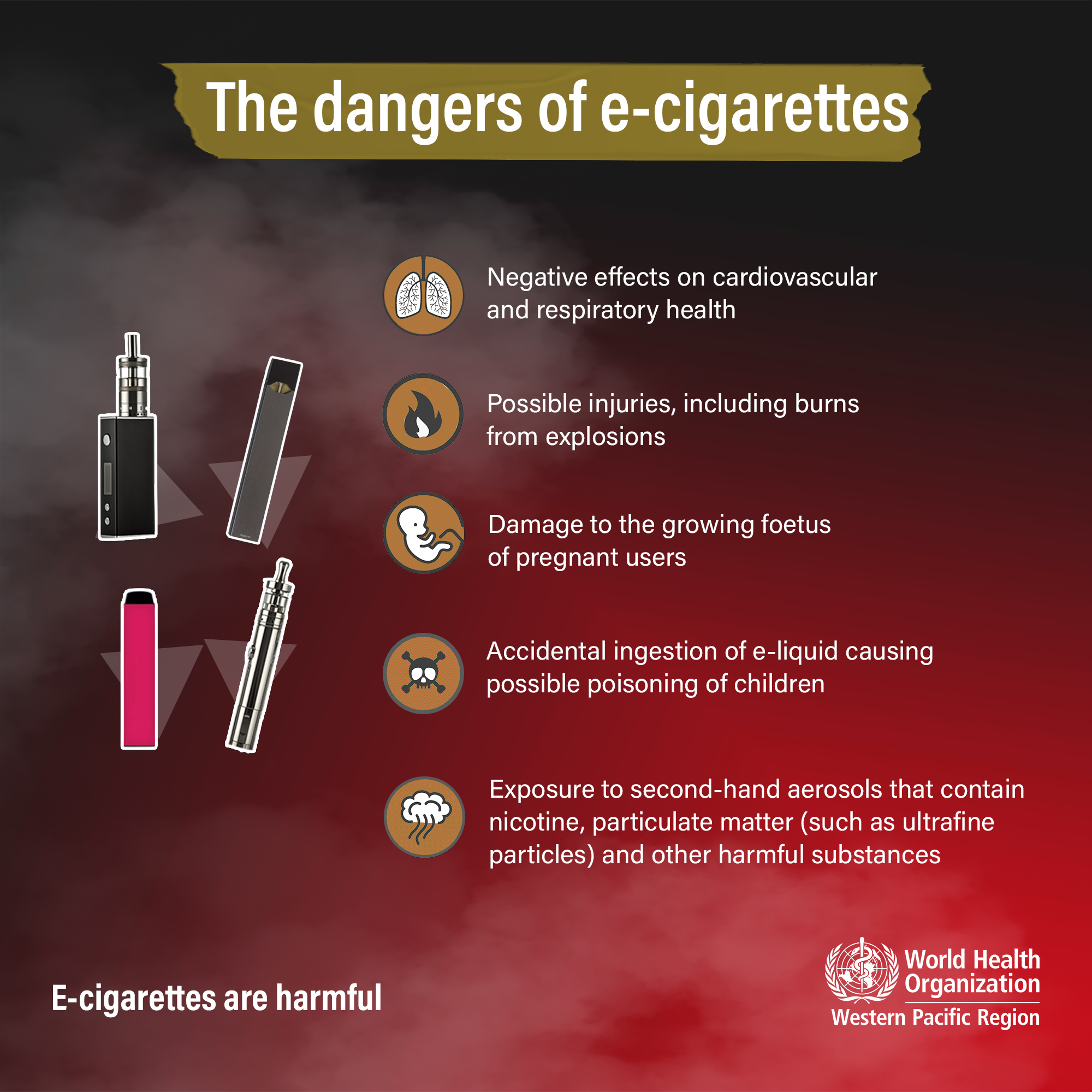Electronic cigarettes, despite perceptions of safety, present significant health dangers and side effects. Their use involves inhaling an aerosol containing various potentially harmful substances.
Key Dangers and Health Concerns
Nicotine Addiction and Brain Development:

- Most e-cigarettes deliver nicotine, a highly addictive chemical. This is particularly concerning for young users, as nicotine can harm adolescent brain development, affecting attention, learning, mood, and impulse control.
- Dependence can develop rapidly, leading to sustained use and exposure to other toxicants.
Respiratory System Impact:
- E-cigarette aerosol can inflame lung tissue and impair lung function. Ingredients like propylene glycol and flavorings can cause irritation and damage.
- Users may experience increased coughing, wheezing, and exacerbation of conditions like asthma.
- Some studies link specific flavoring chemicals to potential for severe lung disease, though research is ongoing for many compounds found in current products.
Cardiovascular Effects:
- Nicotine is a cardiovascular stimulant that increases heart rate and blood pressure. Long-term use may contribute to an increased risk of heart attacks and strokes.
- Other components in the aerosol may also negatively affect blood vessel function and promote conditions that lead to cardiovascular disease.
Exposure to Toxic Substances:
- The aerosol is not merely water vapor. It can contain carcinogens like formaldehyde and acetaldehyde, heavy metals (e.g., nickel, tin, lead), and volatile organic compounds (VOCs).
- Ultrafine particles present in the aerosol can be inhaled deep into the lungs, causing inflammation and potentially systemic effects.
Risks for Specific Populations:
- Youth and Young Adults: Increased risk of nicotine addiction, potential harm to brain development, and a higher likelihood of transitioning to conventional smoking.
- Pregnant Women: Nicotine exposure is detrimental to fetal development, impacting brain and lung formation. E-cigarette use during pregnancy is not safe.
Device Safety Issues:
- E-cigarette batteries can malfunction, leading to fires and explosions that cause serious injuries.
- Accidental ingestion of e-liquid, which can contain high concentrations of nicotine, is highly toxic and can be fatal, especially for children.
Commonly Reported Side Effects
Beyond major health dangers, users frequently report more immediate side effects, including:
- Mouth and throat irritation
- Dry mouth
- Cough
- Nausea
- Headaches
- Dizziness
It is crucial to understand that while e-cigarettes may be perceived as less harmful than combustible tobacco by some, they are not harmless and introduce their own distinct set of health risks and adverse effects. The long-term consequences are still under active investigation.










